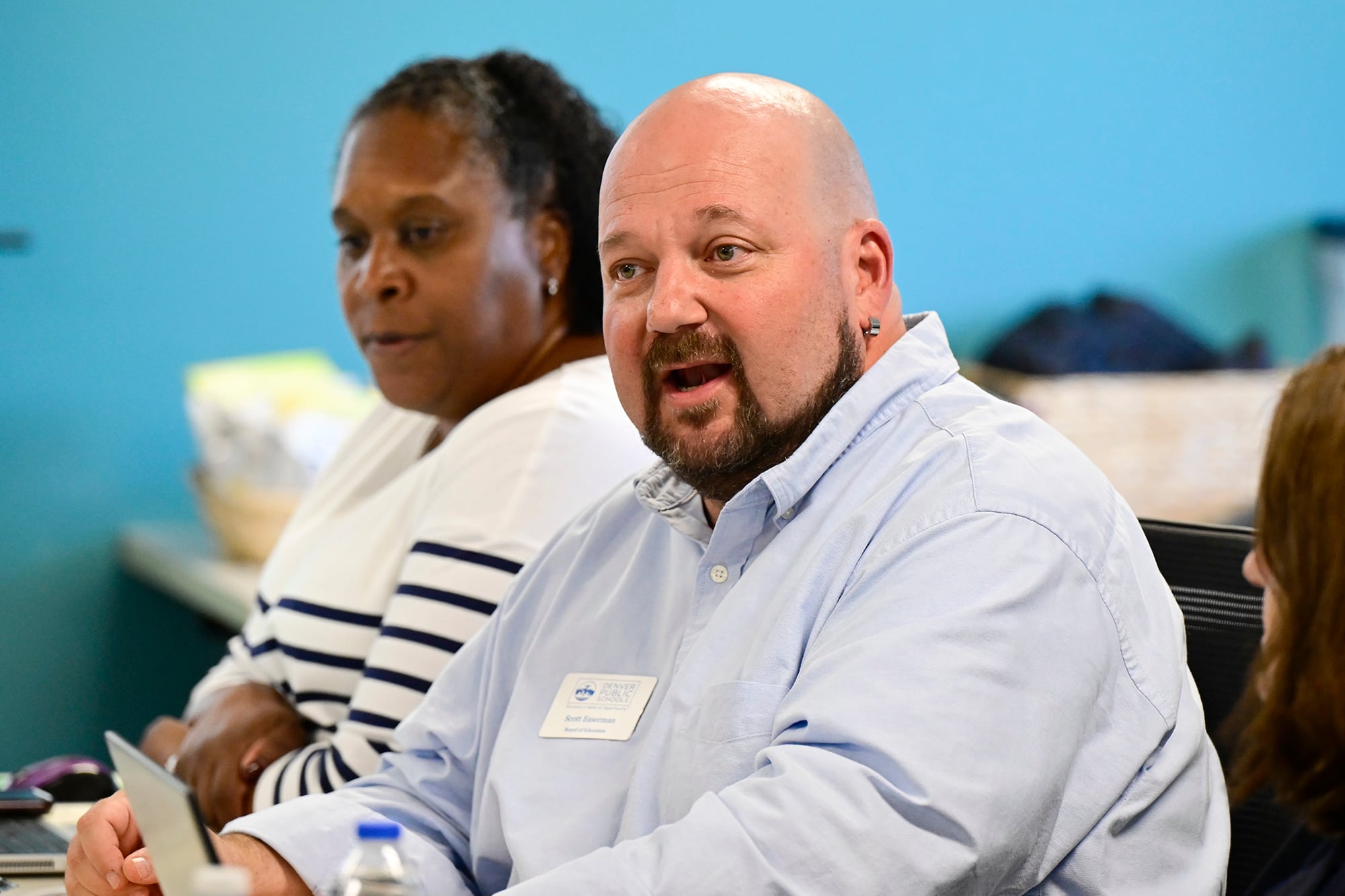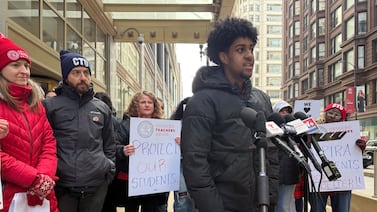Sign up for Chalkbeat Colorado’s free daily newsletter to get the latest reporting from us, plus curated news from other Colorado outlets, delivered to your inbox.
Denver school board member Scott Esserman announced this week that he is running for reelection in November, but for a different seat on the board.
Esserman, 58, will seek to represent central-east Denver’s District 3. That seat is now held by board President Carrie Olson, who can’t run again due to term limits.
Esserman was elected to the board in 2021 as an at-large member representing the entire city. He said he decided to run in District 3 instead because he’d like to represent the region where he lives and raised his children. He’ll face at least one opponent.
Esserman is a former teacher and the father of two children who attended Denver Public Schools. His oldest child graduated from Manual High School. His youngest will be a senior this fall at a charter school, DSST: Montview High.
“We’ve gotten some really good work done, and there’s a lot of unfinished business and additional direction to continue steering the district in,” Esserman said. “Our best chance to make dramatic and great improvements in student outcomes is with consistent leadership.”
Esserman helped craft some of the board’s most high-profile policies in recent years, including its policy on when and how to close schools with low enrollment. Esserman also supported a recent revision to that policy that paused school closures for four years.
Four seats on the seven-member board are up for grabs in November. Esserman was backed in his first campaign by the Denver teachers union, and union-backed board members currently hold a majority of seats. But that could change in the Nov. 4 election, which comes at a key time.
Declining enrollment in DPS has led to more than a dozen school closures in the past two years, and a new policy for low performing schools could result in more closures.
The district’s graduation rate is up, but some students are still recovering from pandemic-era learning loss. DPS has found itself in the crosshairs of the Trump administration over an all-gender restroom and its support for immigrant students. And the board recently ordered an investigation of one of its members over allegations of racial discrimination.
Personality conflicts and tense debates marked Esserman’s early days on the board, and he sometimes clashed with fellow board members.
But Esserman said he doesn’t think the board is dysfunctional. He pointed to several policies the board has passed, including mandating universal dyslexia screening for students and raising the minimum wage for DPS employees to $20.
“The interpersonal dynamics of a seven member board with a lot of politics and differences of opinion are challenging,” Esserman said. “We as a board … have done a lot of great work.”
Esserman was one of three board members who voted against returning armed police officers to Denver schools after several shootings in 2023. He favored an alternate proposal that would have assigned certain officers to respond to schools but wouldn’t station them inside.
He also voted twice to extend Superintendent Alex Marrero’s contract, in 2021 and this year. Esserman said he and Marrero haven’t always agreed, but he respects the superintendent.
“Getting rid of him because folks aren’t satisfied with the rate of progress, getting rid of him because people have baggage with him … doesn’t help our students,” Esserman said.
Esserman voted to require Denver’s semi-autonomous innovation schools to follow the teachers union contract and Colorado’s version of teacher tenure. He also voted in favor of an arbitrator’s decision in a pay dispute between DPS and the Denver Classroom Teachers Association that resulted in teachers not getting a 5.2% cost-of-living raise.
Esserman is a vocal critic of standardized testing. He has often pushed for DPS to base high-stakes decisions on other academic data instead, but hasn’t gotten the full support of the board. Esserman said he would continue that advocacy if he was reelected.
“I don’t have the authority or the ability to eliminate standardized testing,” he said. “But I do have the ability to talk about how we measure in DPS.”
Esserman said he’d also focus on taking “significant steps on academic achievement,” supporting immigrant and LGBTQ+ students, and ensuring the board gets feedback from the community on every policy it considers. Esserman was the main architect of a policy the board passed last week requiring DPS to analyze and adjust school boundaries every five years, an idea he said came from students at West High School.
“That’s how we build trust with community,” he said.
Melanie Asmar is the bureau chief for Chalkbeat Colorado. Contact Melanie at masmar@chalkbeat.org.






